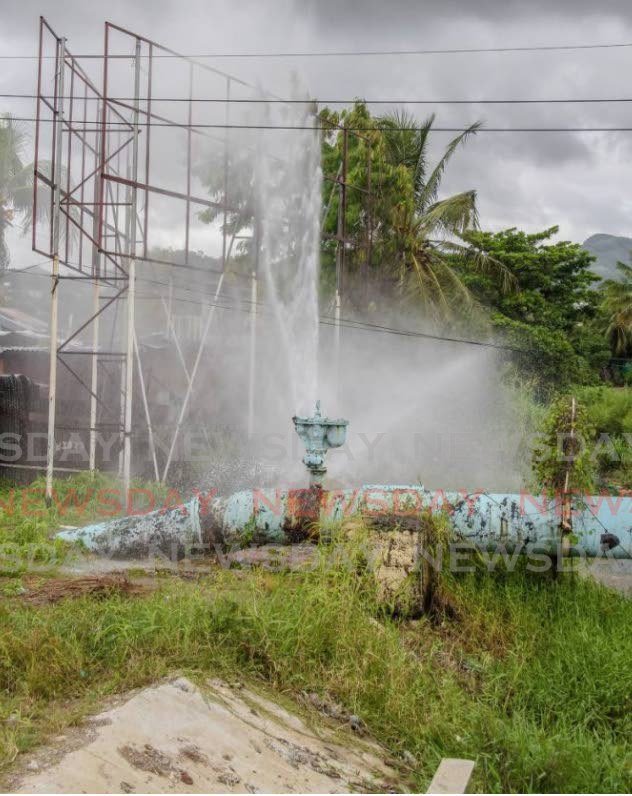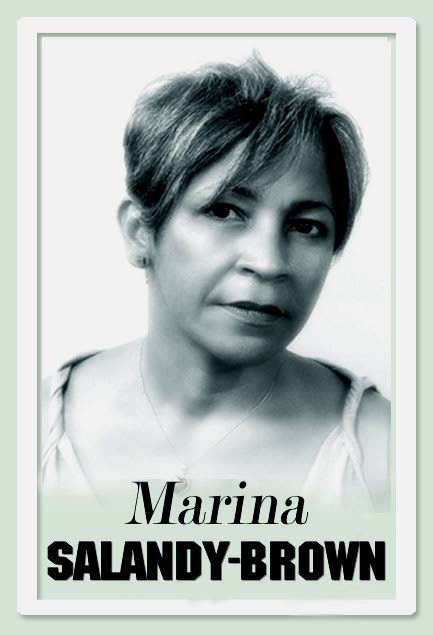Deepening water woes

Trinidad and Tobago’s water problems get murkier and murkier.
I count myself lucky that water flows out of my tap most of the time, never mind it is too often mud-red. Never mind that on the worst days we cannot use the washing machine and have to leave the whites in the washing basket.
Most of the time it runs clear to the naked eye, never mind the chlorine is so strong that it hurts to inhale the air. Never mind it sometimes smells of rotten eggs, even though appearing to be clear and clean.
All of that is after the water entering via my mains has been processed by a large filter I installed to trap the worst of the red sludge. It is quite unbelievable how much thick mud is collected in the 18-inch-long, five-inch-diameter filter, which should be changed perhaps quarterly if the water supply were “normal.” We need to change ours fortnightly at least – not that we do, because it is not cheap to do so.
Consequently, the water in our taps is not suitable for drinking or cooking. I have had to instal a further filter system under the kitchen sink to ensure that what we consume is at least clean, even though it is stripped of all minerals, some of which are beneficial. The plumber called it “dead water,” but at least it is wet, it is available and it would not necessarily kill us.
Before using it I add bicarbonate of soda to restore the alkaline content. I also buy bottled water.
I am still counting my luck, but it seems to be waning recently. Increasingly, there is not a drop of water of any colour in the mains. Before, we only needed a small storage tank for emergency purposes, but now we are drawing down on its contents almost daily, so much so that we have run the tank dry and there was no water in the mains to refill it.
Yet pity those with permanently empty taps for weeks and months on end, with not a drop of public water to drink, and doling out vast sums of money to rogue truck-borne water suppliers. Pity those who have to match their movements and sleep to the vagaries of the water supply, pity those still forced to depend upon standpipes who have to tote water home, or those whose tanks stand empty almost permanently. Pity those who must witness gallons of life-giving water streaming from hundreds of permanently broken pipes in roadways and have none to use for themselves.
Those travails are only at the end of the line. The smelly murkiness backs right up to the politicians and the very existence of the extremely badly managed Water and Sewerage Authority (WASA).
WASA is a public utility company. The chief stakeholder is the entire citizenry of this country, not just WASA employees, and we are extremely poorly served. Water, and even more so WASA, is not a government asset; rather, water is our asset that we elect our governments to manage on our behalf.
In this task, every government for decades has failed to serve us well, since their chosen vehicle remains the increasingly disreputable and unaccountable WASA. which, for reasons some of which Watson Duke declaimed, nobody has the courage to reform. Praise to the present government for reviewing WASA. but the decision last week not to implement a recommendation to retire the company is yet another deferral of necessary action.

WASA does not supply clean potable water and does not properly maintain the infrastructure; it is hugely indebted and is a massive drain on the national purse. It is possibly the worst of all the utilities, all owned and badly run by state authorities.
The government’s strategy is to change the directors and management structure, which is necessary but it does not go far enough. Radical reform is needed.
A new water authority remit should extend beyond potable water distribution and waste management. We face the formidable challenge of environmental degradation, and that authority should be the body that effectively ensures no further deterioration in our increasingly polluted groundwater, aiming for improvement in our ecological standards, the protection of our biodiversity and ecology, and in developing overarching policies that mitigate climate change.
It should also be focusing on the sustainable use of water resources and on being able to offer us no essential supply interruptions during dry seasons. We need a much higher level of drinking water quality at fair prices that reflect real cost charges.
A water authority should also have a key role in the sustainability of our agriculture, forestry, fisheries, energy, industry, town and country planning or land use, transport, tourism and telecommunications.
In short, we need more joined-up government. As for accountability, WASA should be publishing its standards on dangerous substances and its compliance performance.
None of this is happening, if at all, or to satisfactory levels. WASA’s time came and went and we should acknowledge it and demand better.


Comments
"Deepening water woes"